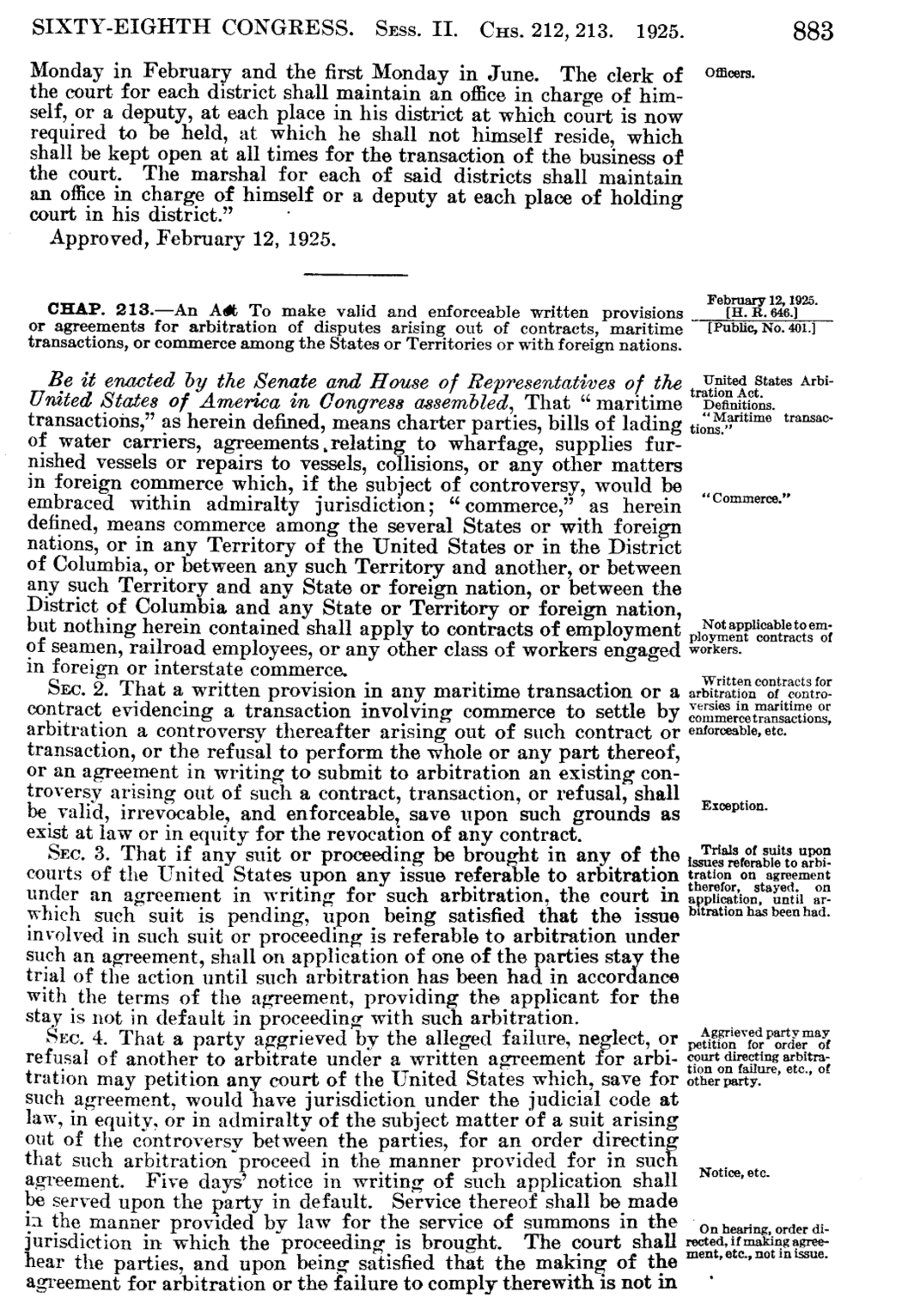CA Supreme Court removes prejudice requirement for waiving arbitration rights | July 26, 2024
If a complaint is filed in court for a claim covered by an arbitration agreement, the defendant can move to compel arbitration. If the defendant chooses to litigate in court, he may forfeit the right to arbitration through waiver. The California Supreme Court previously required showing prejudice to establish waiver. But in Morgan v. Sundance, Inc. (2022), the U.S. Supreme Court held that federal law treats arbitration agreements equally with other contracts (it doesn’t favor them). Therefore, courts must apply the same waiver principles to arbitration agreements as to other contracts. In light of this ruling, in Quach v. Cal. Commerce Club, Inc., No. S275121 (Cal. July 25, 2024), the California Supreme Court overruled its prior precedent requiring a showing of prejudice. So, going forward, California no longer requires showing prejudice to establish waiver in arbitration cases, aligning state law with federal law.
Defeating Mandatory Arbitration | October 29, 2023
Commercial agreements often include an arbitration clause as an alternative to public litigation. The allure of arbitration lies in its perceived speed, cost-effectiveness, and confidentiality. But a party experiencing contracting-remorse has a series of arguments available to it to try and avoid arbitration, most of which are below:
There is no valid and enforceable contract between the parties. See ISC Holding AG v. Nobel Biocare Investments N.V., 351 F. App'x 480, 480 (2d Cir. 2009) ("Without a meeting of the minds such that an enforceable agreement to arbitrate was formed, we will not compel arbitration.”). Importantly, though parties can agree to have an arbitrator decide whether a specific dispute is subject to arbitration, the question of contract formation is a non-delegable issue for a court to decide. See Eiess v. USAA Fed. Sav. Bank, 404 F. Supp. 3d 1240, 1248 (N.D. Cal. 2019) (“The issue of contract formation, however, is not a delegable gateway issue. ”).
The arbitration clause isn’t applicable to the parties’ dispute. See International Brotherhood of Electrical Workers v. GKN Aerospace North America, Inc., 431 F.3d 624, 629 (8th Cir. 2005) ("Determining whether the arbitration clause applies to a particular dispute thus requires a determination of whether the grievance at issue arises under the agreement.”).
The arbitration clause is void. See Chavarria v. Ralphs Grocery Co., 733 F.3d 916, 921 (9th Cir. 2013) ("Like other contracts, arbitration agreements can be invalidated for fraud, duress, or unconscionability.”).
The counter party waived its right to compel arbitrate. See Khan v. Parsons Glob. Servs., Ltd., 521 F.3d 421, 425 (D.C. Cir. 2008) ("However, consistent with arbitration's contractual basis, a party may waive its right to arbitration by acting inconsistently with the arbitration right.”).
